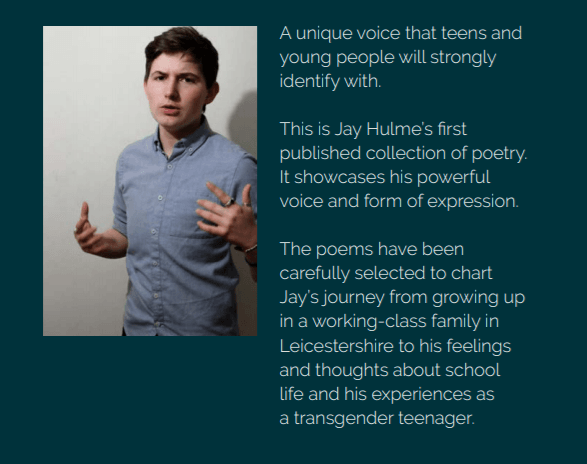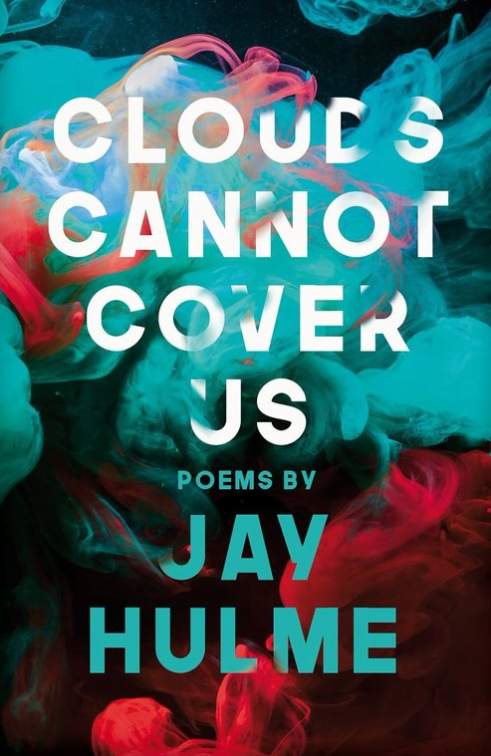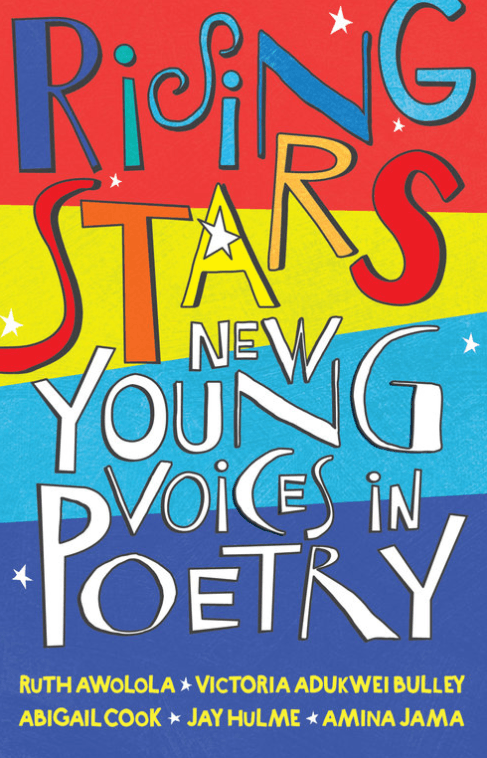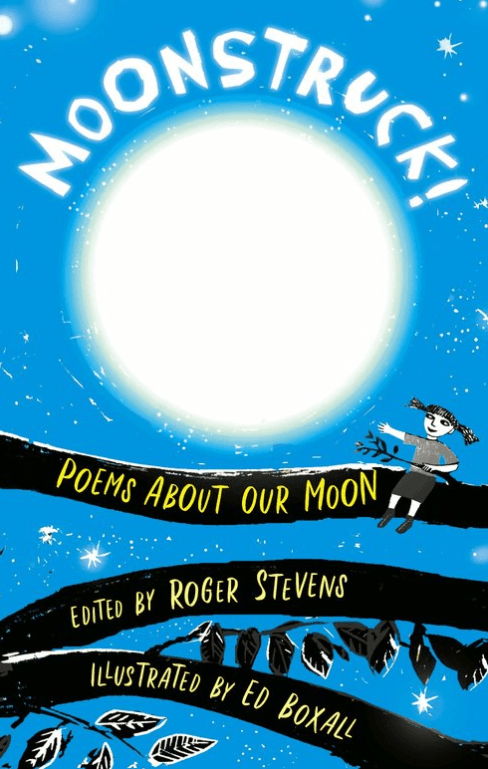Jay Hulme is an award winning transgender performance poet, speaker and educator. In the first part of this interview, he talks about his wonderful, striking new collection of poems, which is aimed at teenagers and young adults, called Clouds Cannot Cover Us…

I wondered if you could start by telling us a bit about your new anthology Clouds Cannot Cover Us, which is published by Troika?
Clouds Cannot Cover us is a poetry collection for teenagers and young adults, the main concept being that there is a lot of bad stuff in the world, and that we do need to address it, but that we can always overcome, and push for better.
The title of the anthology really interests me. I always think of clouds being associated with sadness, pain, misery – perhaps the notion being that when you’ve found yourself and are at peace, you can’t be made to feel less than. Does the title have a specific meaning to you?
To me, the title is a kind of rallying cry – you’re right that clouds are associated with negative things, and so the title, Clouds Cannot Cover Us is a statement of defiance. It’s the idea that young people can defy the past, and make their own futures, and that clouds – metaphorically, at least – cannot cover them, cannot dampen their spirits.

The layout of the poems is very interesting. The first part of the anthology has the poems presented in a striking white font against black pages. In the second part of the collection, this is reversed. Why did you decide to do this?
It was actually an idea the publishers came up with. I went to a meeting with them after I’d delivered the final draft of the collection and they’d seen the duality, and the contrast of darkness/light and positivity/negativity in the two parts of the collection, and they surprised me with mockups of the book with that design already in place. I’m so glad they had the idea as it so well reflects that idea of coming out of darkness and that sense of overcoming that the book represents.

Class and poverty seem to be important themes throughout, seem in poems like ‘Pension Scheme’ and ‘Working Class’. Can you tell us a bit more about these poems and themes?
I think class and poverty are really important things to address – they impact so many people’s lives, in so many ways, and people should talk about them more, instead of shying away, ashamed.
I really love the poem ‘Did you fight to be here?’ How far do you think the LGBT+ community has come in terms of acceptance and inclusivity? What more would you like to see being achieved by the community?
I think we’ve come really far – but we’re now in a difficult stage where awareness has increased faster than acceptance so there’s a lot of negativity and hatred around, as well as positivity and advancement.

You tackle gun crime very movingly in some of your poems. Has this always be an issue close to your heart?
I think it’s very important, but all violent crime is. I’m a staunch pacifist these days, and I just get so angry at all the lives that are damaged or cut short needlessly through violence.
How do you think the first part of this collection is similar to the second part? How is it different?
The first part of the collection is similar to the second part in it’s honesty, I think, but the second part is very different in tone and content. There’s a lot more hope in the second part, and a lot less anger.
This might be a tricky question, but do you have a favourite poem in Part 1 of Clouds Cannot Cover Us?
You cannot ask me that – they are all my word-children!
Next week, Jay joins us again for a second interview where we explore in further detail some more of the poems in Clouds Cannot Cover Us. Watch out for an exciting giveaway too!

